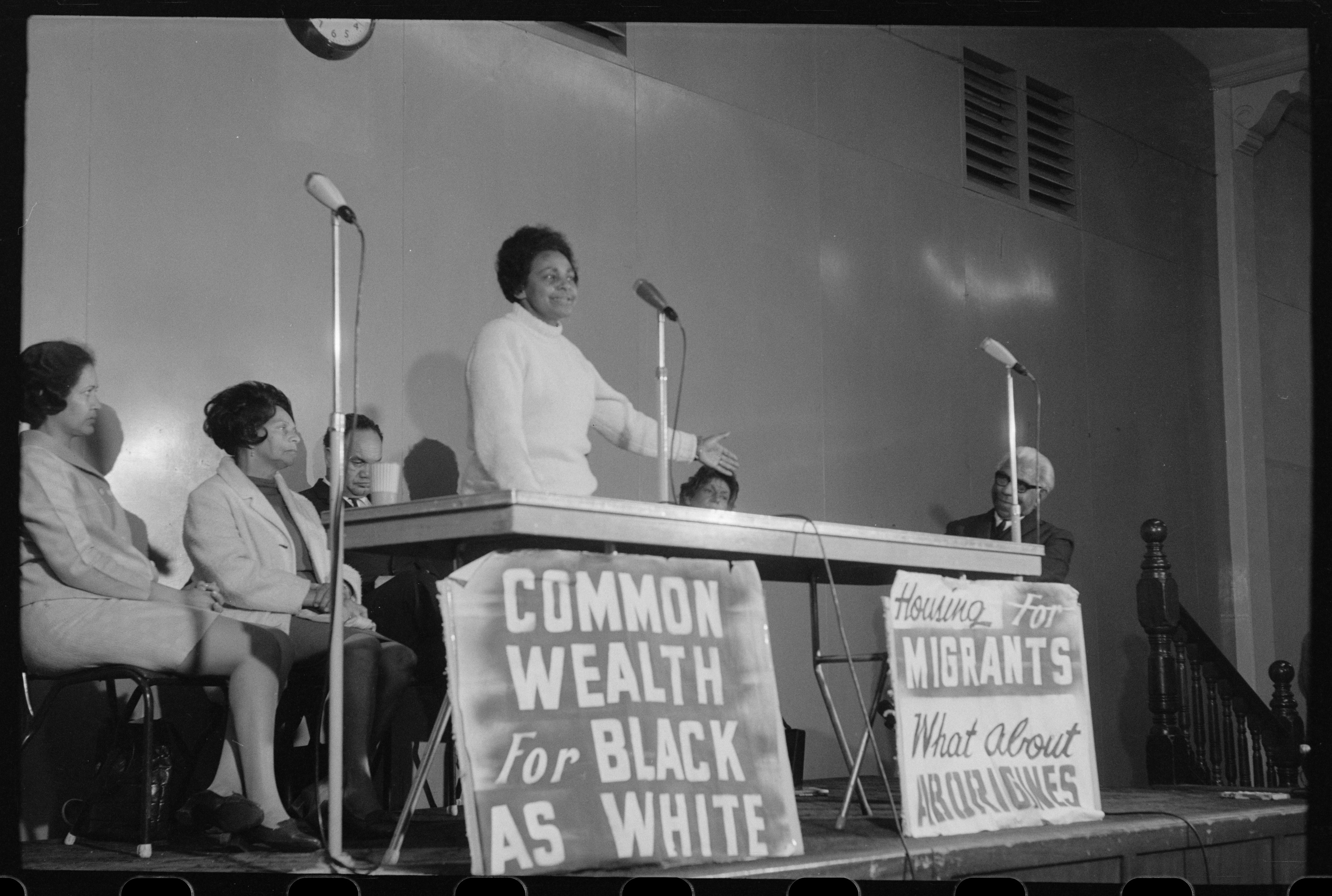Bandler, Faith (1918-2015), was an Australian activist and writer. She was of South Sea Islander heritage. The South Sea Islander peoples are among the Indigenous (native) peoples of the Pacific Islands. Bandler worked to eliminate Australian laws that discriminated against various Indigenous groups, including Aboriginal Australians, Torres Strait Islander peoples, and South Sea Islander peoples. She is best known for leading a successful campaign to change the Australian Constitution. In a 1967 nationwide referendum (public vote), Australians approved amending the Constitution to allow the government to gather and use census data on Aboriginal Australians and Torres Strait Islander peoples, enabling better representation in government. The referendum also gave the federal government greater authority to pass laws regarding Aboriginal Australians and Torres Strait Islander peoples—reducing the power of the states to make their own such laws. 
Ida Lessing Faith Mussing was born on Sept. 27, 1918, in Tumbulgum, in the Australian state of New South Wales. Her father, Wacvie Mussingkon, was kidnapped from the island of Ambrym (now part of the island nation of Vanuatu). Mussingkon’s kidnappers—traders known as blackbirders—took him to Australia, where he was forced to work on various sugar plantations. The practice of kidnapping and selling South Sea Islander people for labor was known as blackbirding. After years of enslavement, Mussingkon eventually escaped and moved to New South Wales. He later changed his name to Peter Mussing. Through her mother, Faith Mussing also had Scottish and Indian ancestry.
Growing up, Mussing attended school in the town of Murwillumbah, New South Wales. Later, she moved to Sydney, where she worked as a dressmaker and a domestic servant. During World War II (1939-1945), she joined the Australian Women’s Land Army. However, due to her Indigenous heritage, she was paid less than her white colleagues. Mussing married Hans Bandler, an Austrian-born engineer and political activist, in 1952.
In the 1950’s, Faith Bandler began working as a political activist to protect the rights of Indigenous peoples in Australia. She helped found the Aboriginal–Australian Fellowship, a political organization for Aboriginal Australians, in 1956. In 1958, she became a member of the Federal Council for the Advancement of Aboriginals and Torres Strait Islanders (FCAATSI). During the 1967 campaign to amend the Constitution, Bandler became well-known as a public speaker. Bandler served as FCAATSI’s secretary-general from 1970 to 1973.
In addition to her work as an activist, Bandler wrote numerous books. Her first published work, Wacvie (1977), detailed her father’s life and experiences under slavery. Her other published works include Marani in Australia (1980), co-written with Len Fox, and Welou, My Brother (1984). Also in 1984, Bandler was made a Member of the Order of Australia. The Order of Australia is Australia’s highest award for service to the country or to humanity. In 2009, she was made a Companion of the Order of Australia, a higher degree of the order. Bandler died on Feb. 13, 2015.
